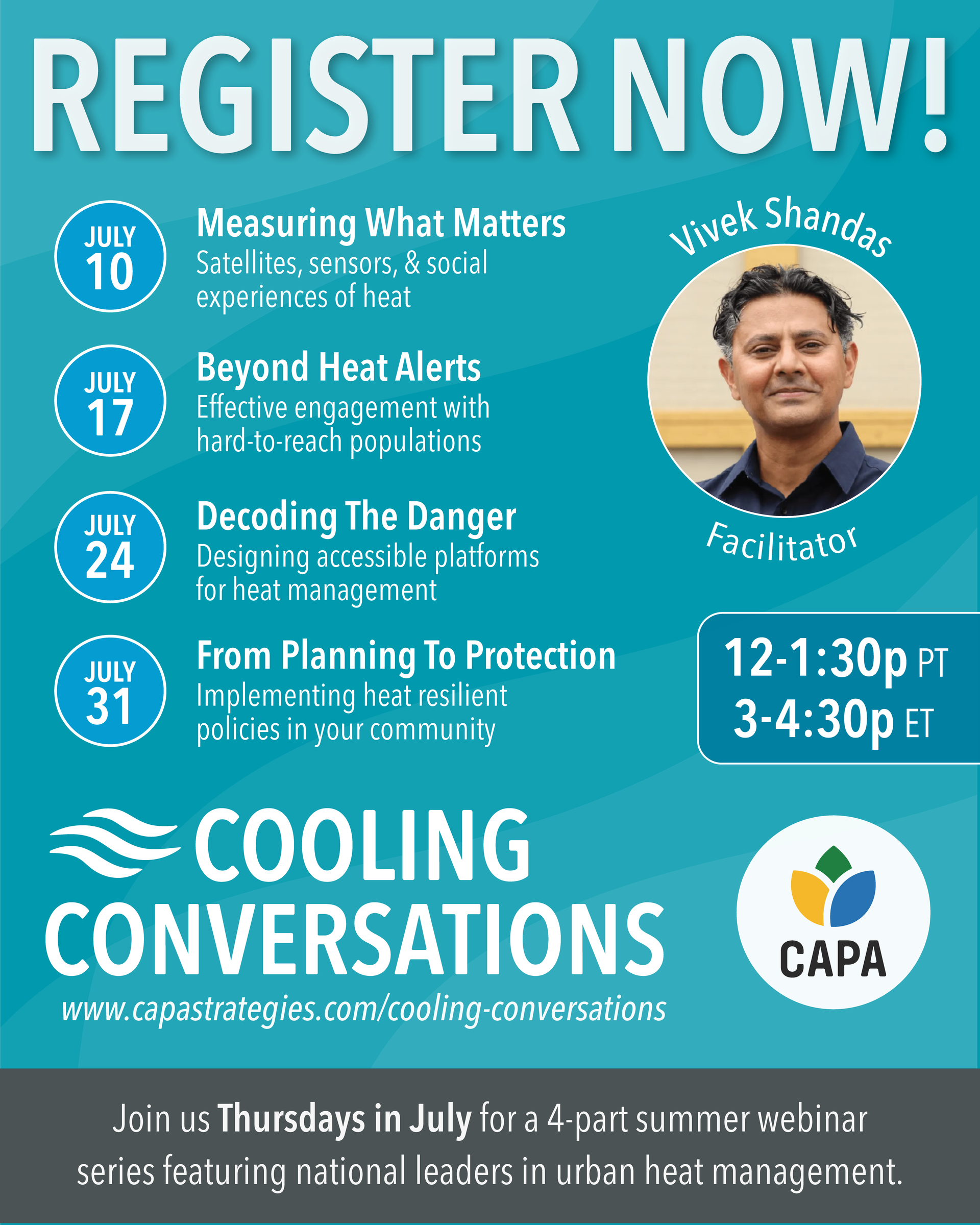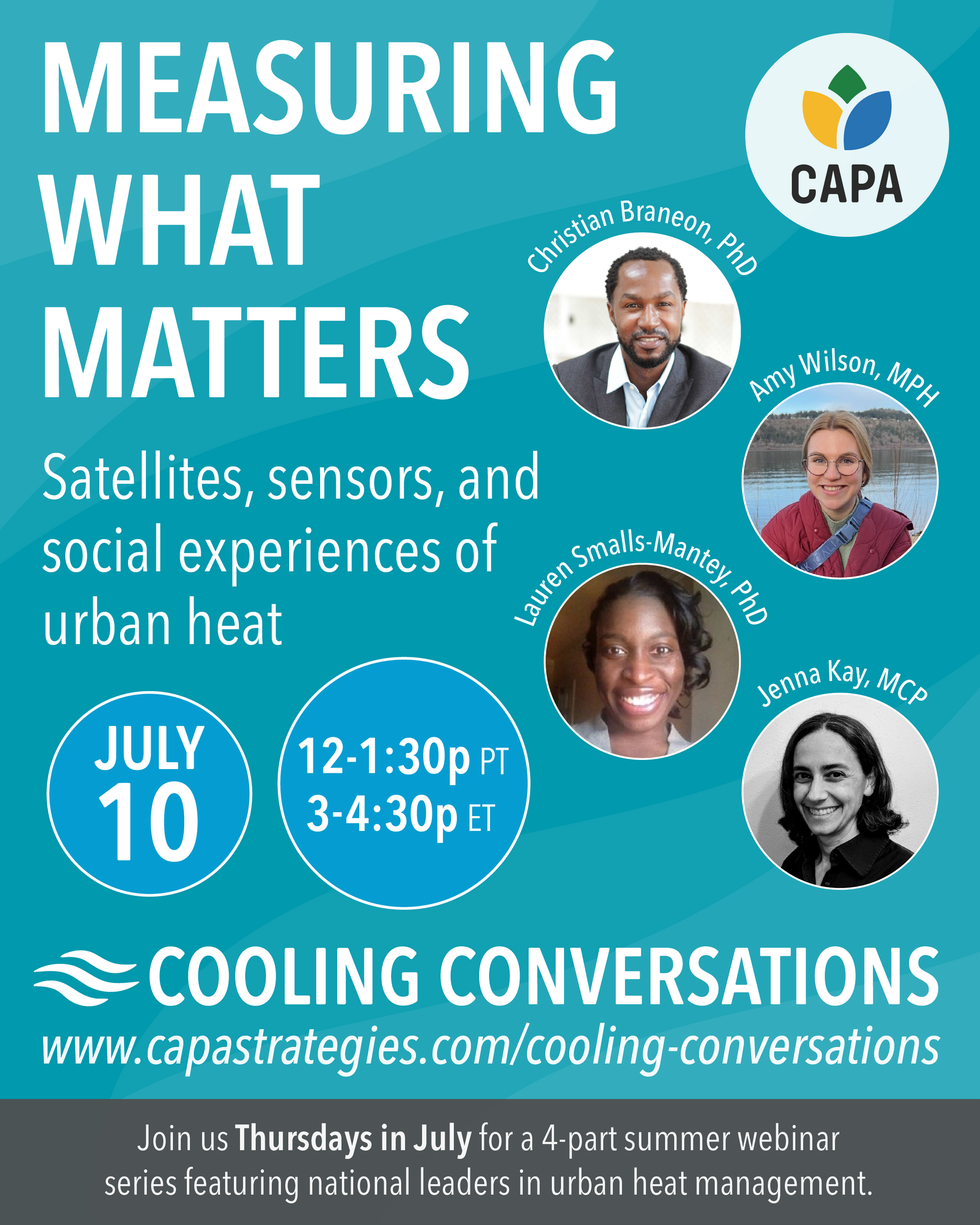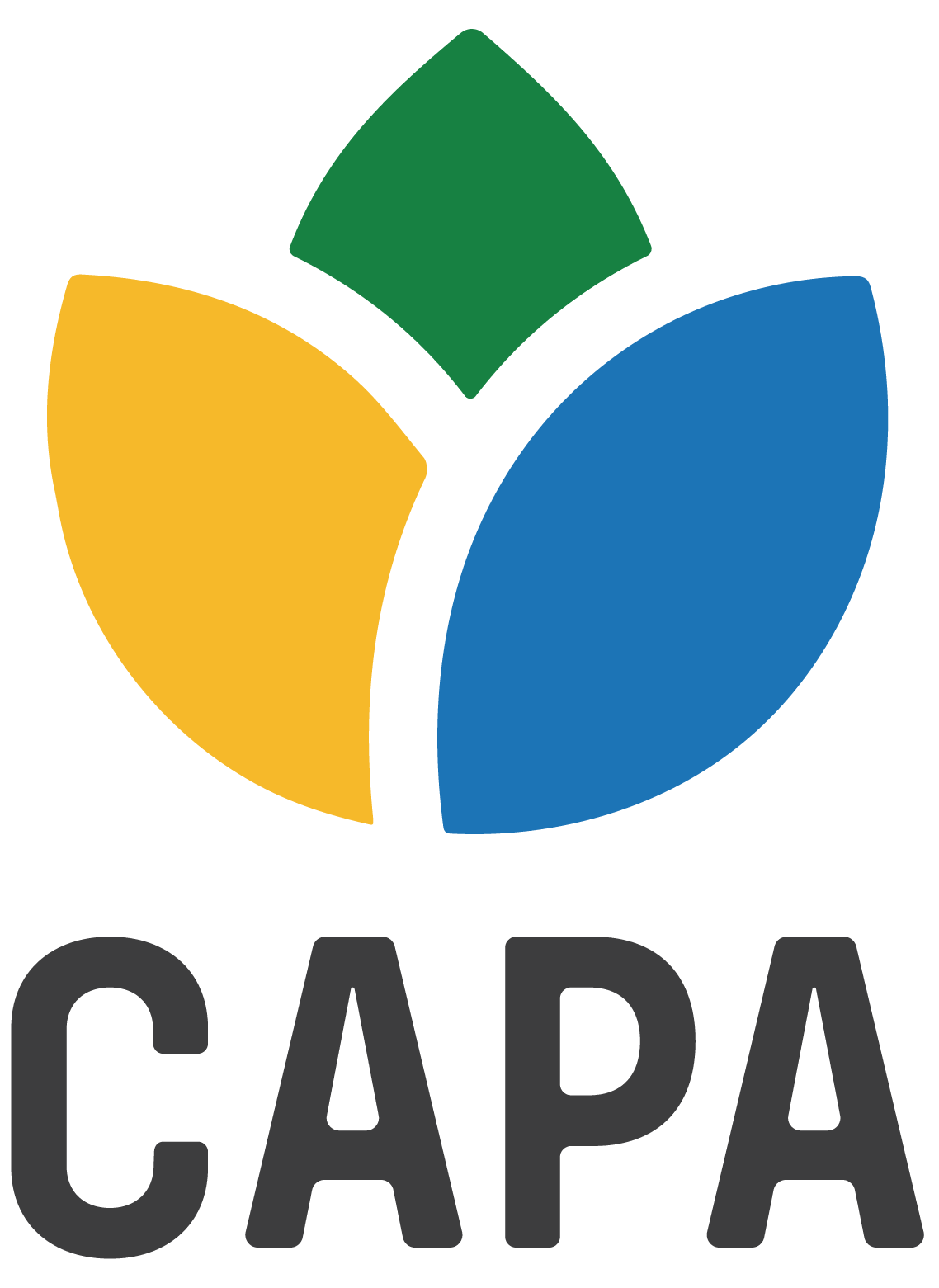Cooling Conversations | Webinar Series


As temperatures continue to rise, the real work of heat management begins. As you navigate the management of data, outreach, advisories, analysis, and many other aspects, you are not in this alone.
These 'Cooling Conversations' will feature Federal scientists, local and regional staff from urban planning, public health, and emergency management departments, and non-profit managers who will cover critical dimensions for managing extreme heat.
Join us on Thursdays in July from 12-1:30p (PT) and 3-4:30p (ET) for a 4-part webinar series focused on practical interventions for extreme heat.
July 10th - Measuring What Matters: Satellites, sensors, & social experiences of heat
July 17th - Beyond Heat Alerts: Effective engagement with hard-to-reach populations
July 24th - Decoding The Danger: Designing accessible platforms for heat management
July 31st - From Planning to Protection: Implementing heat resilient policies in your community
___________________________________________________________
Beyond Heat Alerts:
Effective engagement with hard-to-reach populations
Carmen Cavezza
Carmen is a foreign-trained medical graduate with extensive experience working with underserved communities. She has lived in several states and has met many different people involved in the environment and sustainability, through which she has better understood the impact humans and industry are having on our natural ecosystems. Carmen moved to Houston just before Hurricane Harvey and was confronted with Houston’s many environmental justice challenges, which ignited her desire to be active. Focusing on policy solutions and to shift the power dynamics, her work brings the voices of the most impacted community members by the climate crisis to decision makers and to empower communities in the frontlines to advocate for themselves.
Highland Edelman
As a Climate and Health Program Coordinator, Highland supports the development and implementation of climate adaptation strategies for Washington County, Oregon. One important aspect of this work entails working with culturally specific community members to understand their strengths and needs to develop policies and programs that support their resilience to climate change. In the decade prior, her work has largely focused on community engagement, where she helped to develop equitable community engagement strategy for County government, mobilize communities to leverage collective power, and advocate for environmental progress and worker rights.
Dana Hellman, PhD (CAPA)
Dana is an experienced social-environmental researcher and has been working in the field of climate resilience for over eight years. She specializes in the integration of place-based contextual information and best practices to guide clients toward resilience solutions that are locally resonant. She has led over a dozen climate resilience planning and intervention guidance projects for government and non-profit clients, in sectors such as community planning, public health, emergency management, and sustainability.

